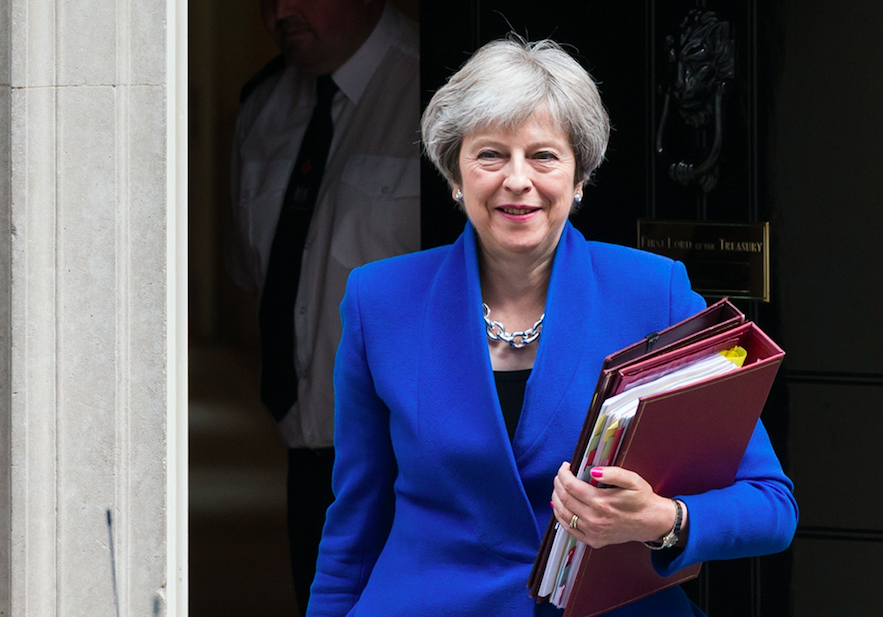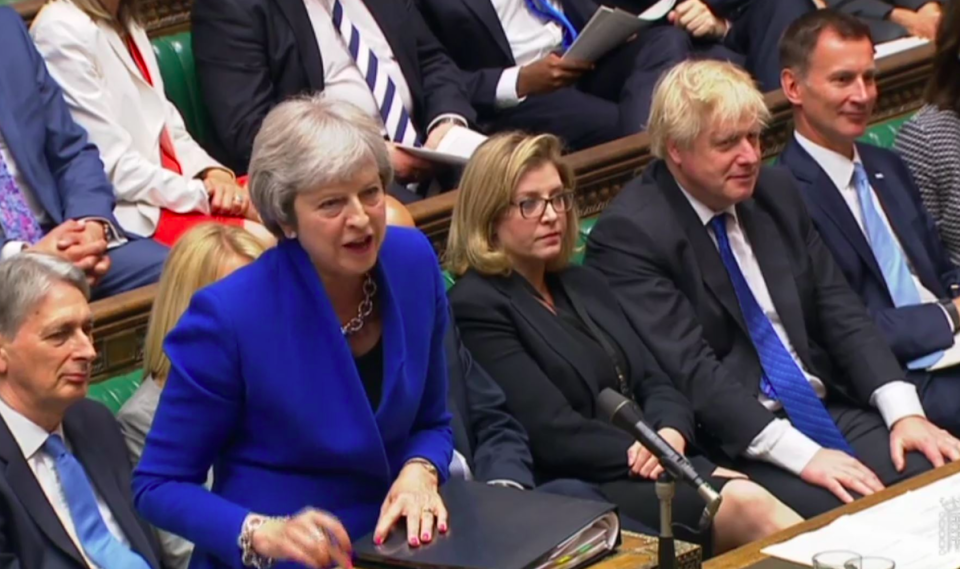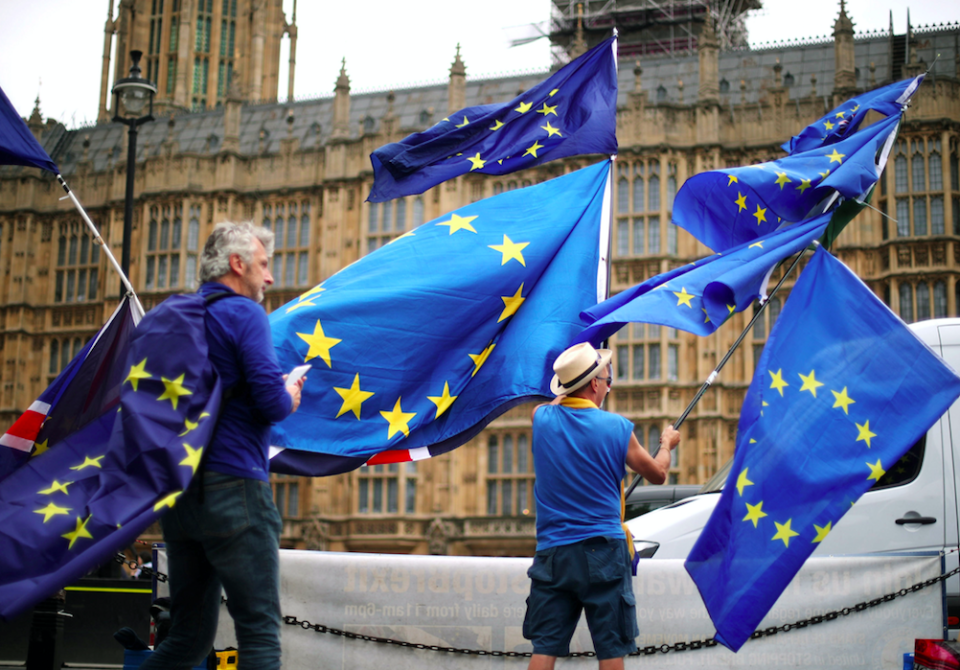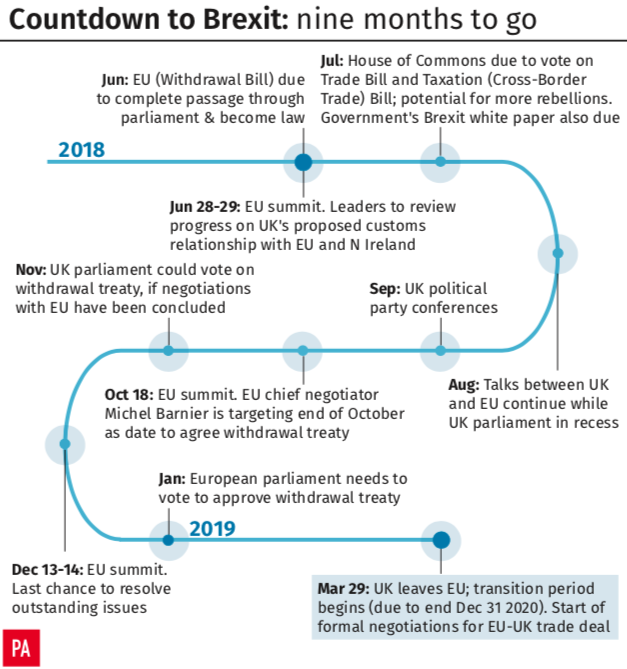Theresa May promises ‘smooth and orderly Brexit’ after defeating pro-EU rebellion

Theresa May once again managed to narrowly avoid an embarrassing defeat on her flagship Brexit bill yesterday, paving the way for Britain’s exit from the EU.
The bill cleared its final parliamentary hurdle after the Prime Minister avoided a backbench rebellion with an eleventh hour concession to pro-EU Tories.
MPs voted by 319 to 303 to reject a House of Lords amendment to the EU Withdrawal Bill that would have ensured the Commons would have the chance to block a ‘no deal’ Brexit.
The legislation subsequently returned to the Upper House in the final stage of ‘parliamentary ping-pong’, where it passed without a vote.

The Prime Minister welcomed the passage of the bill – which transfers EU regulations onto the UK statute book – as ‘a crucial step in delivering a smooth and orderly Brexit’.
She said: ‘Today’s votes show people in the UK, and to the EU, that the elected representatives in this country are getting on with the job, and delivering on the will of the British people.’
Earlier, there were dramatic scenes at Westminster as MPs were told shortly before the key vote that an official ministerial statement would be issued on Thursday making clear it is ultimately for Speaker John Bercow to decide whether they get a ‘meaningful vote’ on a no-deal withdrawal from the EU.
The concession was accepted by leading pro-EU Tory Dominic Grieve, who was greeted with jeers of ‘shame’ from the opposition benches when he declared he would back the Government.
BREXIT DEVELOPMENTS – MORE ON YAHOO UK:
Article 49: What is it and how can it reverse Brexit after the UK leaves the EU?
How the ‘Brussels Effect’ will continue to run Britain’s economy long after Brexit
How will Brexit affect your finances in 2018?
Facebook widens probe into Russian influence on Brexit vote
Second vote not undemocratic, Irish PM says on Brexit
But it was dismissed as a fudge by Scottish National Party leader Nicola Sturgeon and described as meaningless by Labour whips.
Despite the concession six Tory rebels voted for the amendment, while on the Labour side four pro-Brexit MPs defied their whips to vote with the Government against it.
Mr Grieve had tabled an amendment to the bill, requiring MPs to be given the opportunity to approve or reject the Government’s plans for the next steps in the case that no agreement can be reached with Brussels by Brexit Day in March next year.
With the Government instead offering only an unamendable ‘neutral motion’ allowing MPs to take note of the situation, Mrs May was thought to be facing a knife-edge vote.

Eurosceptic Jacob Rees-Mogg has insisted the concession promised by Theresa May to head off the revolt did no more than restate existing parliamentary rules.
Speaking on BBC Radio 4’s Today programme, Mr Rees-Mogg said: ‘The Speaker will be bound by precedent and standing orders, the Speaker will not make an arbitrary decision.
‘If the motion is not in neutral terms it doesn’t meet the requirement of the Act of Parliament.’
He added: ‘It has always been the case that Parliament can have any motion it wants, the question is does it have any legal force?
‘A motion under an Act may have legal force, a routine motion in expression of opinion by the House of Commons does not have legal force.
‘So if it is an amendable, non-neutral motion, it is an expression of opinion by the House of Commons, it does not have legal force under the Act and that is very important.
‘The written ministerial statement is merely an expression of the standard parliamentary proceedings to make it clear that the Act wasn’t trying to overturn those.’

Downing Street’s determination to force their motion through was indicated when Tory whips made clear they would not abide by a parliamentary convention allowing votes to be ‘nodded through’ from ambulances and cars in the courtyard outside if MPs are too ill to physically pass through the voting lobbies.
Bradford West’s Naz Shah, who has been ill, was pushed in to vote in a wheelchair with a sick bucket on her lap, in scenes which fellow Labour MP Catherine McKinnell said showed an ‘utter lack of humanity and compassion’ from the Government.
Meanwhile pregnant Liberal Democrat deputy leader Jo Swinson and Labour MP Laura Pidcock turned out to oppose the PM’s plans despite being close to their due dates.
Downing Street left no doubt ministers are confident of drafting a motion which Mr Bercow will deem to be unamendable.
Mrs May’s official spokesman told reporters: ‘We will ensure that under standing orders the motion we bring forward is neutral.’

Mr Grieve said the statement amounted to an ‘obvious acknowledgement of the sovereignty of this place over the executive in black and white language’.
But Tory Remainer Anna Soubry rebelled, insisting MPs’ power to reject the Government’s plans must be enshrined in statute.
Also rebelling was Phillip Lee, who quit his job as justice minister in order to vote against the Government last week, along with Tory backbenchers Heidi Allen, Kenneth Clarke and Sarah Wollaston.
On the Labour side, MPs Frank Field, Kate Hoey, John Mann and Graham Stringer voted with the Government.


